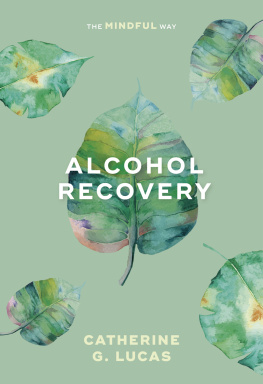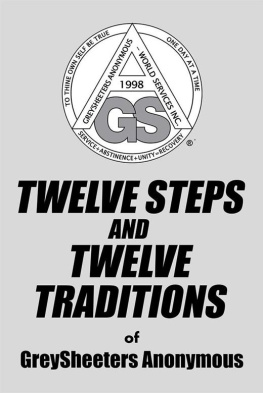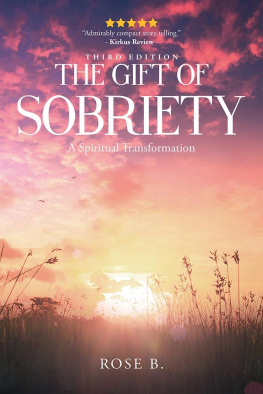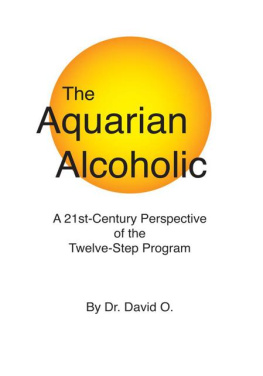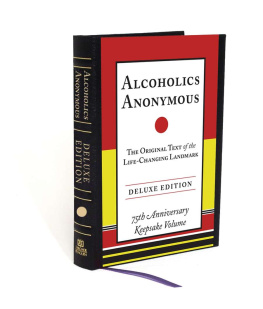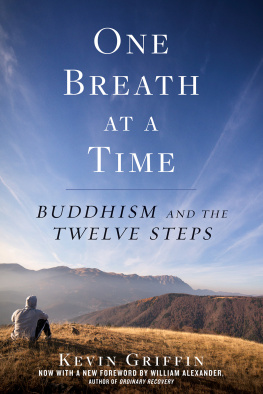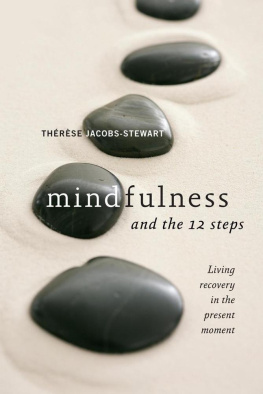
The Mindful Way
Alcohol Recovery
Catherine G. Lucas qualified as a mindfulness trainer in 2007. She has been training groups since then, including NHS therapists and, for the Ministry of Defence, soldiers returning from Iraq and Afghanistan. Catherines father was an alcoholic and she credits mindfulness with saving her from following in his footsteps.
She is the author of Coping with a Mental Health Crisis (also published by Sheldon Press) and In Case of Spiritual Emergency , and is founder of the Spiritual Crisis Network, a UK charity. She is an authority on psychospiritual crisis and a respected international speaker.
Mindfulness titles available from Sheldon Press:
Alcohol Recovery
Catherine G. Lucas
Anxiety and Depression
Dr Cheryl Rezek
Compassion
Caroline Latham
Keeping a Journal
Philip Cowell
Pain Management
Dr Cheryl Rezek
Quit Smoking
Dr Cheryl Rezek
Stress
Philip Cowell and Lorraine Millard
A full list of titles is available from Sheldon Press, 36 Causton Street, London SW1P 4ST and on our website at www.sheldonpress.co.uk
The Mindful Way
Alcohol Recovery
CATHERINE G. LUCAS

First published in Great Britain in 2017
Sheldon Press
36 Causton Street
London SW1P 4ST
www.sheldonpress.co.uk
Copyright Catherine G. Lucas 2017
All rights reserved. No part of this book may be reproduced or transmitted in any form or by any means, electronic or mechanical, including photocopying, recording, or by any information storage and retrieval system, without permission in writing from the publisher.
The author and publisher have made every effort to ensure that the external website and email addresses included in this book are correct and up to date at the time of going to press. The author and publisher are not responsible for the content, quality or continuing accessibility of the sites.
The extracts from Mindfulness-Based Relapse Prevention for Addictive Behaviors by Sarah Bowen, Neha Chawla and G. Alan Marlatt (Guilford Press, 2011) in Chapters 5 and 6 are reproduced by kind permission of Guilford Press.
British Library Cataloguing-in-Publication Data
A catalogue record for this book is available from the British Library
ISBN 9781847094292
eBook ISBN 9781847094308
eBook by Fakenham Prepress Solutions, Fakenham, Norfolk NR21 8NN
For Amanda
and all those committed to
healing the wounds of alcoholism.
Also for J. M. and R. S.
There is so much to be grateful for in writing a book: the opportunity to help you, the reader; the opportunity to share the wonders of mindfulness; and, of course, the opportunity simply to do what I love to write. My thanks to the whole Sheldon Press team, especially Fiona Marshall, for this opportunity. Writing about alcohol recovery has been a healing journey for me.
Im particularly grateful to all those who have contributed. Thank you Ben, Brendan and Richard for undauntedly sharing your stories. They bring the book to life and make the journey of recovery real. I know they will help readers enormously. With courage, you show that recovery is achievable, wounds can be healed.
Thank you also to Dr Paramabandhu Groves, Director of Breathing Space, and Devin Ashwood, of Action on Addiction, for sharing your expertise. Thank you for the incredibly valuable work you do. Of my ever-supportive friends, Id like to thank Isabel in particular. Many thanks for the generous loan of your home while you were abroad it makes the perfect writing retreat.
Its wonderful to have my husband-cum-sub-editor by my side when Im away working on the final stage of a book. Thank you, Swithin, for giving of yourself so freely. The meditative quality of our time away together as we worked on this mindfulness manuscript was precious.
Lastly, Id like to thank you, the reader. Youre the raison dtre for these chapters. Without you there would be no book. Certain books have made a huge difference to my life and I hope this one touches yours in the same way.
No names have been changed or identities hidden, as Ben, Brendan and Richard quite rightly feel that they have nothing to hide and nothing to be ashamed of. Together we can help break down the taboo and stigma around the wounding that leads to alcohol abuse.
Mindfulness saved me from alcoholism.
Catherine
My story
I come from a family of alcoholics. A lineage that stretches as far back as a great-grandparent and, for all I know, further still. Ive witnessed both the misery of alcoholism and the miracle of recovery.
My father died young, at 49, of throat cancer, relatively common among alcoholics. His short life began in September 1939; he was born just two weeks after the Second World War broke out. His own father died when he was two and he was brought up in the kind of wartime poverty most of us in the West today can only begin to imagine. He won a scholarship to a good school and went on to university. He then worked his way up the career ladder, driven by the kind of ambition poverty fuels. His drinking career and his professional career went hand in hand as he moved up the echelons of the drinks industry, from travelling sales rep for a whisky label to international marketing director of a high street brand of gin. He was a charismatic man but also highly sensitive, and I suspect he struggled in the macho business environment.
While he was the primary addicted person in my life, there were alcoholics on both sides of my family. My mothers brother, my uncle, died of liver disease. Today, I feel so blessed that my generation have found our way to healing, a healing that our parents and grandparents were not fortunate enough to find. I have a huge sense of gratitude for having escaped from the misery of active addiction. I could so easily have followed in my fathers footsteps. I look back now at times when I was abusing alcohol and realize what a close escape I had.
As a teenager I would sit in my bedroom listening to Simon and Garfunkel. I would sing along to their song I am a rock. I wanted to be that rock, feeling no pain; I wanted to be the island that never cried. In my late teens and early twenties, as a student, without realizing what I was doing, I abused alcohol to anaesthetize myself. I was trying to numb my emotional and psychological pain from coping with the abuse that comes from having an alcoholic father. The hurt felt endless.
Later, when my first marriage was in crisis, I again turned to alcohol as a refuge, as a way of running away. What saved me? What stopped me spiralling down into becoming addicted? Meditation. I discovered it almost by chance soon after my marriage fell apart. Determined not to fall apart myself, I looked for a way of coping with the stress and came across meditation. Experiencing the power of mindfulness, I later trained to become a mindfulness teacher, qualifying in 2007, in the early days before mindfulness had really caught on.
Alcohol and mindfulness are two threads that have woven their way through my life. My answer to alcohol and the consequences of alcohol is mindfulness. My answer to suffering is mindfulness. I believe that whatever our suffering, mindfulness can help alleviate it. It enables me to be with emotional pain without needing to numb myself or self-medicate.
Just writing about this now dredges up the past. I take a break to work out how to comfort myself, how to bring compassion to myself and my painful memories. I make myself a hot drink. This simple gesture with the intention of being kind to myself is enough. For me mindfulness is all about self-compassion, self-nurture. This is what comes when I bring awareness to the present moment, to my experience now, especially in a moment of suffering.
Next page
